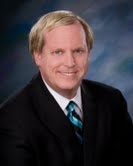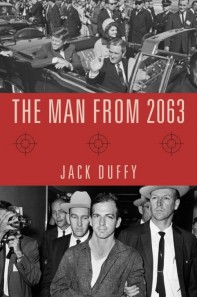Kyle Scott, PhD, teaches American politics and constitutional law
at Duke University. He has published three books and dozens of articles
on issues ranging from political parties to Plato. His commentary on
contemporary politics has appeared in Forbes, Reuters.com, Christian
Science Monitor, Foxnews.com, and dozens of local outlets including the
Philadelphia Inquirer and Baltimore Sun.
To find out more, please visit
http://kyleascott.wordpress.com
Find him on Twitter at :
ScottKyleA
Find him on Facebook at :
http://www.facebook.com/kyleasc
Q: Thank you for this interview, Kyle. Can you tell us what your
latest book, The Federalist Papers: A Reader’s Guide, is all about?
A:
The Federalist Papers: A Reader’s Guide is an attempt to make
The Federalist Papers
accessible to more people. With growing interest in the founding
generation, and the continual question raised by our politicians of
original intent, I think it is important for people to find out for
themselves what this work is all about. Also, the debate over the
constitution’s ratification demonstrates that political rhetoric need
not be empty sound bites but can be elevated to philosophical discourse
without losing its realism.
 Q: How did you come up with the idea?
Q: How did you come up with the idea?
A: When I see a problem addressed irresponsibly or incorrectly I feel
compelled to make a contribution. In The Federalist Papers: A Reader’s
Guide I try to show how an open and reasoned dialogue between two
opposing sides can be productive. In today’s political climate that
seems so polarized and characterized by petty bickering I think we can
learn a lot from the ratification debates and I try to help the reader
see why the ratification debates have practical relevance for today. The
goal was to break them out of their stale reputation and let readers
see how alive and relevant the writings are.
Q: What kind of research did you do before and during the writing of your book?
A: I tried to read all of the secondary and primary literature on
Hamilton, Madison and Jay in order to get a better grasp of what they
were trying to say. But with so much information it was tough to distill
it down to its essence. This book is my attempt to do the heavy lifting
for the reader who has other things to do with their time but still
finds the subject important.
Q: If a reader can come away from reading your book with one valuable message, what would that be?
A: That political rhetoric can be elevated beyond where it is now and
needs to be if we are to move forward in a more productive fashion.
Q: In your own experience, is it hard to get a nonfiction book published today? How did you do it?
A: I’ve written four books and I have had each published. But it did
require a lot of submissions to various publishers that either rejected
the book or did not bother to respond. I think an agent or editor might
help the process along. Of course, with each passing year I think the
process of getting a book placed with a traditional press will get more
difficult as the competition from self-publishing and e-readers
intensifies.
Q: What’s a typical day like for you?
A: Sometimes I wish those existed. In addition to my teaching and
writing I run a family business. So depending on what needs tending to
that day dictates what my day looks like.
Q: What’s next for you?
A: I’m working on a book about the value of humility. I think we
could avoid a lot of conflict in our personal lives, in politics,
business, and internationally if we were more open to discussing the
ideas of others and not so conceited in thinking that we know it all.
It’s easy to be defensive and arrogant, but it’s not necessarily the
best course of action. The book is designed to help us see the value of
humility and how it might be incorporated into various contexts.
Q: Thank you so much for this interview, Kyle. We wish you much success!
A: Thank you for giving me the chance to discuss my book.
 Jack Duffy is an attorney from Fort Worth, Texas. The Man from 2063 is
his first book. On November 22, 1963 he was in school at Bruce Shulkey
Elementary when he heard the news about President Kennedy’s
assassination. His parents were at the breakfast in Fort Worth, Texas,
that morning when President Kennedy gave his last speech. In 1970 he
saw the Zapruder film for the first time. He has been researching the
JFK assassination since then. He has interviewed many eyewitnesses
including Marina Oswald and several Parkland physicians who treated
JFK. He has met many researchers who have written books on the
assassination. He came up with the idea for a time travel novel in
1998. He has one of the largest private collections of materials on the
JFK assassination. He graduated from Texas Tech University with a B.A.
in Political Science. He then earned an M.B.A from Baylor University.
He then graduated from South Texas School of Law with a J.D. He is an
Eagle Scout.
Jack Duffy is an attorney from Fort Worth, Texas. The Man from 2063 is
his first book. On November 22, 1963 he was in school at Bruce Shulkey
Elementary when he heard the news about President Kennedy’s
assassination. His parents were at the breakfast in Fort Worth, Texas,
that morning when President Kennedy gave his last speech. In 1970 he
saw the Zapruder film for the first time. He has been researching the
JFK assassination since then. He has interviewed many eyewitnesses
including Marina Oswald and several Parkland physicians who treated
JFK. He has met many researchers who have written books on the
assassination. He came up with the idea for a time travel novel in
1998. He has one of the largest private collections of materials on the
JFK assassination. He graduated from Texas Tech University with a B.A.
in Political Science. He then earned an M.B.A from Baylor University.
He then graduated from South Texas School of Law with a J.D. He is an
Eagle Scout. Who are some of the key people connected with the JFK assassination who died suspiciously?
Who are some of the key people connected with the JFK assassination who died suspiciously?
